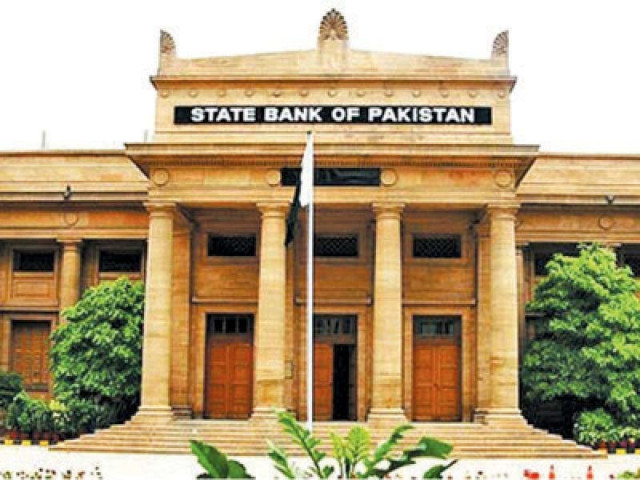Interest on export funding increased
SBP raises rate by 13%, withdraws concessionary funding with effect from Friday

Pakistan’s central bank has increased the rate of financing by two percentage points to 13% for exporters, partially withdrawing the incentive of concessionary funding to them with effect from Friday (today) amid the country’s foreign exchange reserves depleting to alarming levels.
The rate-hike will make country’s exports expensive and uncompetitive at regional and international levels.
The central bank’s step to partially withdraw the rate incentive is, however, found in the right direction under the current scenario, “moving towards the International Monetary Fund’s (IMF) loan revival,” Finance Ministry’s former advisor Dr Khaqan Hassan Najeeb said in tweet.
Resumption of the IMF programme worth $6.5 billion stands critical to avoid a likely default on international payments amid a high foreign exchange reserves crisis. The State Bank of Pakistan’s (SBP) notification reads “markup rates for financing under EFS (export finance scheme Part-I & Part-II) and LTFF (long term finance facility) are increased from the existing 11% pa (per annum) to 13% pa each with effect from December 30, 2022.”
The central bank provides working capital through EFS and capital for buying and/or importing new machinery through LTFF at concessional markup rates to exporters. The rate remains notably low, compared to the bank’s prevailing key policy rate, which is 16% at present.
“It has now been decided to reduce the gap between policy rate and EFS and LTFF rates from existing 5% to 3%,” meaning the concessional rates have been increased to 13%, compared to 11% earlier.
“In future with any change in the SBP policy rate, markup rates for EFS and LTFF will be revised automatically so that the gap between policy rate and EFS and LTFF rates is maintained at 3%,” said the SBP.
Pak-Kuwait Investment Company (PKIC) Head of Research Samiullah Tariq remarked that the rate-hike will obviously increase the cost of doing business for the exporters. However, the bank’s decision to increase the markup rate is in the right direction.
“The decision will improve the monetary policy transmission,” meaning it will reduce the aggregated demand in the domestic economy, which is a must to better manage with low foreign exchange reserves at present.
The central bank has increased the rate of concessional financing just two days after giving exporters a priority to import their raw material and machinery for the projects that are near completion.
The country’s exports were already facing mounting pressure due to restrictions on imports meant for exports amid low foreign exchange reserves and a drop in demand for goods in the country’s export markets, including the US and Europe amid global economic slowdown.
“50% to 60% spinning and weaving (textile) mills have already been closed due to partial restriction on import,” said Asif Inam, Chairman of the All-Pakistan Textile Mills Association (APTMA) Central.
The central bank has revised up the markup rate on the day (Thursday) it announced the country’s (SBP) foreign exchange reserves having decreased by $294 million to $5.82 billion due to external debt repayment made in the week ended on December 23, 2022.
Local research houses observe that the reserves have depleted to the critically low levels after a gap of almost nine-years. The reserves are barely enough for a five-week import cover, compared to around the three-month import cover (at $20 billion) the country had some 16-month ago in August 2021.
Besides, the country is due to repay a foreign debt worth $1 billion next week. The fall in reserves rang an alarm for a likely default on international payments, if the IMF’s loan programme remains virtually suspended, going forward.
Prime Minister Shehbaz Sharif and Finance Minister Ishaq Dar, both have announced that the country will fulfil all the conditions agreed upon with the global lending institution to resume the loan programme.
Experts believe the IMF will disburse its next tranche worth around $1.2 billion somewhere in February 2023. Besides, other multilateral and bilateral creditors are also waiting for the IMF to unlock funding that is meant for Pakistan.
APTMA officials demanded the government and the central bank aggressively cut bank’s key policy rate to create an enabling environment for businesses, including export-oriented ones.
Speaking to the Express Tribune, an exporter explained that they were receiving export orders, but partial restrictions on imports meant for exports have caused the closure of a large number of textile manufacturing units – ones that bring in almost 60% of the country’s total export earnings.
Published in The Express Tribune, December 30th, 2022.
Like Business on Facebook, follow @TribuneBiz on Twitter to stay informed and join in the conversation.



















COMMENTS
Comments are moderated and generally will be posted if they are on-topic and not abusive.
For more information, please see our Comments FAQ